August 4, 2025 | 15:40 GMT +7
August 4, 2025 | 15:40 GMT +7
Hotline: 0913.378.918
August 4, 2025 | 15:40 GMT +7
Hotline: 0913.378.918
On April 19, a workshop on "Cow breed genetics in Vietnam" was held to discuss worldwide experiences and apply technology to domestic dairy cow breed genetics.
Mr. Pham Kim Dang, Deputy Director of the Department of Livestock Production (MARD), said that Vietnamese animal husbandry has steadily improved in terms of production capacity and strong integration with the area and the globe.

Mr. Pham Kim Dang, Deputy Director of the Department of Livestock Production (right): Vietnam is in the Top 2 strong global brands of the dairy industry. Photo: PT.
In 2023, despite challenges from the global economy, political conflicts in some areas, decreased consumer demand, complicated disease outbreaks, and climate change, the livestock industry as a whole produced approximately 7.6 million tons of meat, nearly 19 billion eggs, and 1.2 million tons of milk.
Dairy farming has a history of expansion with other animal industries, although milk production growth in Vietnam has continuously been in the double digits. Vietnam's dairy enterprises are recognized among the top five most sustainable milk brands in the world, the top ten most valuable milk brands, and the top two strongest global milk brands.
Although Vietnam's dairy sector has grown to 11th in Asia for milk output and 5th in milk productivity per cow, local supply still falls short of demand. Every year, Vietnam imports a huge quantity of milk and dairy products to fulfill local demand. In 2023, the government spent almost 1.2 billion USD on milk and milk product imports.
"Currently, the average consumption of milk and milk products per capita in Vietnam is around 27kg/person/year. This consumption level is expected to rise to 40kg/person/year by 2030. This implies that Vietnam's dairy farming business has great prospects for future growth," said Mr. Pham Kim Dang.
According to the Livestock Department's findings, despite some successes, the dairy farming business continues to encounter obstacles and challenges, such as a shortage of grazing space, natural grazing sites, and restricted acreage for producing animal feed.
Furthermore, Vietnam's free trade agreements with other nations, as well as its 0% import duty on milk imports, have placed Vietnamese dairy firms in direct rivalry with one another. Furthermore, the goal to decrease greenhouse gas emissions to zero by 2050, as outlined in the agreed roadmap at COP26, necessitates the livestock business developing innovative solutions in animal husbandry," observed the Deputy Director of the Livestock Department on the problems.
As a result, livestock industry officials think that upgrading dairy cow breeds and boosting productivity are critical for the Vietnamese dairy business to remain competitive.
Ms. Gwen Powers, Senior Director of Technical Services at GENEX, emphasized the relevance of genetic technology in dairy cow farming, stating that in the United States, the livestock business seeks dairy cattle with greater productivity, and researchers concentrate on herd statistics. Farms have more data than ever before. A single dairy cow may provide more than 2 billion data points during its lifetime.
According to Ms. Gwen Powers, the variety of genetic features in the livestock population has enabled the selection of the best cattle for diverse conditions and uses. Genetic assessments based on DNA markers and phenotypes may help forecast an animal's genetic worth.
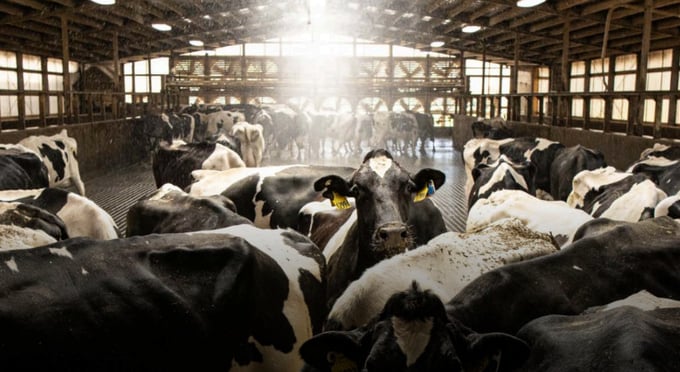
The average milk consumption of Vietnamese people is forecast to increase to 40kg/person/year by 2030. Photo: PT.
Since 1960, the average annual milk output of Holsteins in the United States has climbed from around 5,900 kg to 12,700 kg per cow. As a result, scientists anticipate that genetic technology will play an important role in dairy cow breeding.
The "GENEX Dairy Bull Search" tool, which was unveiled by the business during the conference, may be used based on US studies of genetic variation for 50 significant dairy cow qualities.
Furthermore, the technology aids in identifying economically significant qualities while highlighting traits that need improvement, allowing producers to weigh the advantages of breeding, cut feeding costs, and limit genetic problems.
Choices focused purely on productivity will limit reproductive potential. In contrast, making balanced decisions to enhance features helps to increase economic worth.
The US dairy sector now produces four times more milk than in 1945 and twice as much as in 1970. Based on the success of the US dairy business, Mr. Israel Handy, Director of GENEX, discussed his dairy cow farming experiences from US farms.
Mr. Israel Handy's experiences at the seminar are stage-specific: during the newborn calf stage, breeders focus on immunizations, excellent colostrum, and keeping calf quarters clean. It is critical to keep postpartum cows in clean enclosures and watch them closely.
During the drying-off stage, care is taken to provide a correct nutritional diet. During the weaning period, ongoing vaccine supplements and improved diet are required. In terms of breeding, Mr. Israel Handy promotes the use of pedigree charts and breeding programs.
Translated by Linh Linh
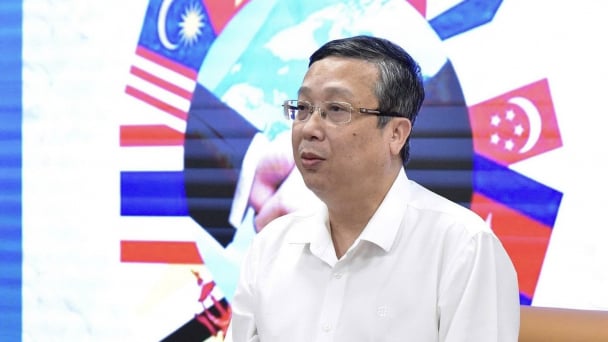
(VAN) Deputy Minister Hoang Trung emphasized that the sector's international cooperation must be symbolic and deliver tangible results in line with commitments to the global integration process.
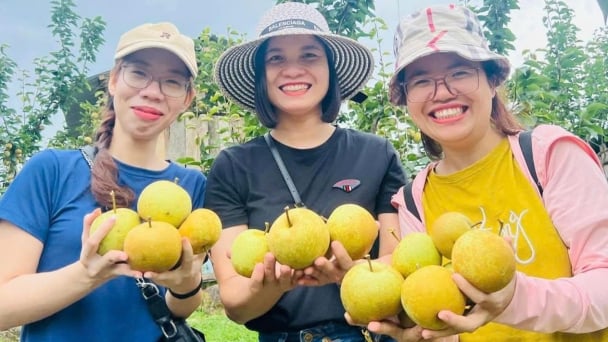
(VAN) The recent unique combination of agriculture and tourism has created a new buzz in Lao Cai.
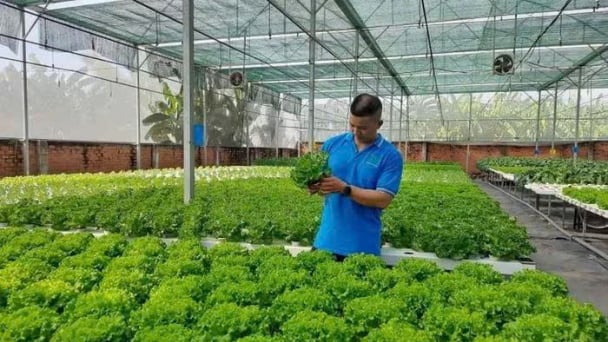
(VAN) Dr. Nguyen Thi Thanh Thuy, Head of the International Cooperation Department at the Vietnam Gardening Association, delivered a presentation at a United Nations workshop on food security.
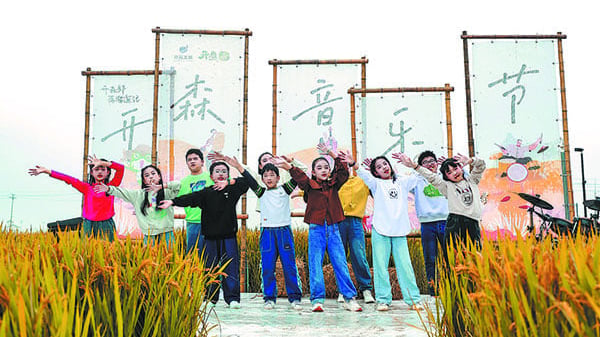
(VAN) On a summer morning, the light cuts softly across grasslands intersected by stone paths, and the scent of lotus rises from the waterlogged fields at Kaisen (Happy) Tribe in Wangjiangjing town.
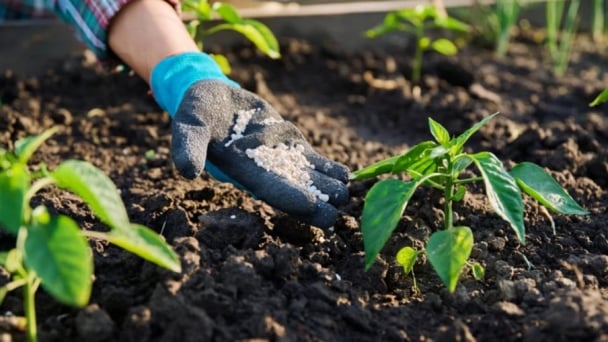
(VAN) Humanity has an insatiable appetite for ammonia: This substance is used to make fertilizer, which in turn is used in most modern agriculture.
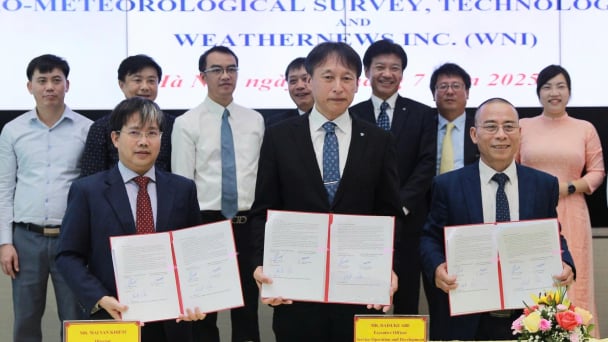
(VAN) Vietnam and Japan are strengthening cooperation in disaster preparedness, with a new initiative focusing on integrating artificial intelligence (AI) into typhoon and flood warning systems.
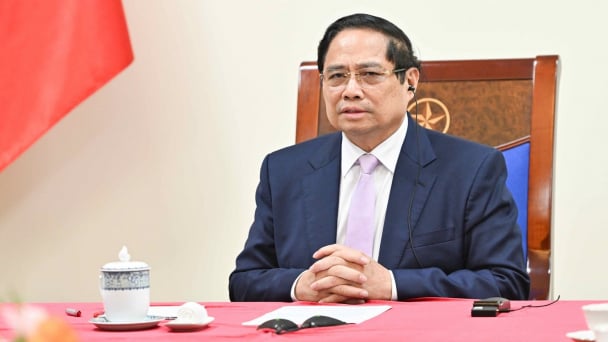
(VAN) Prime Minister Pham Minh Chinh and Malaysian Prime Minister Anwar Ibrahim discussed the early signing of rice trade agreement for Vietnam to support Malaysia's food security.